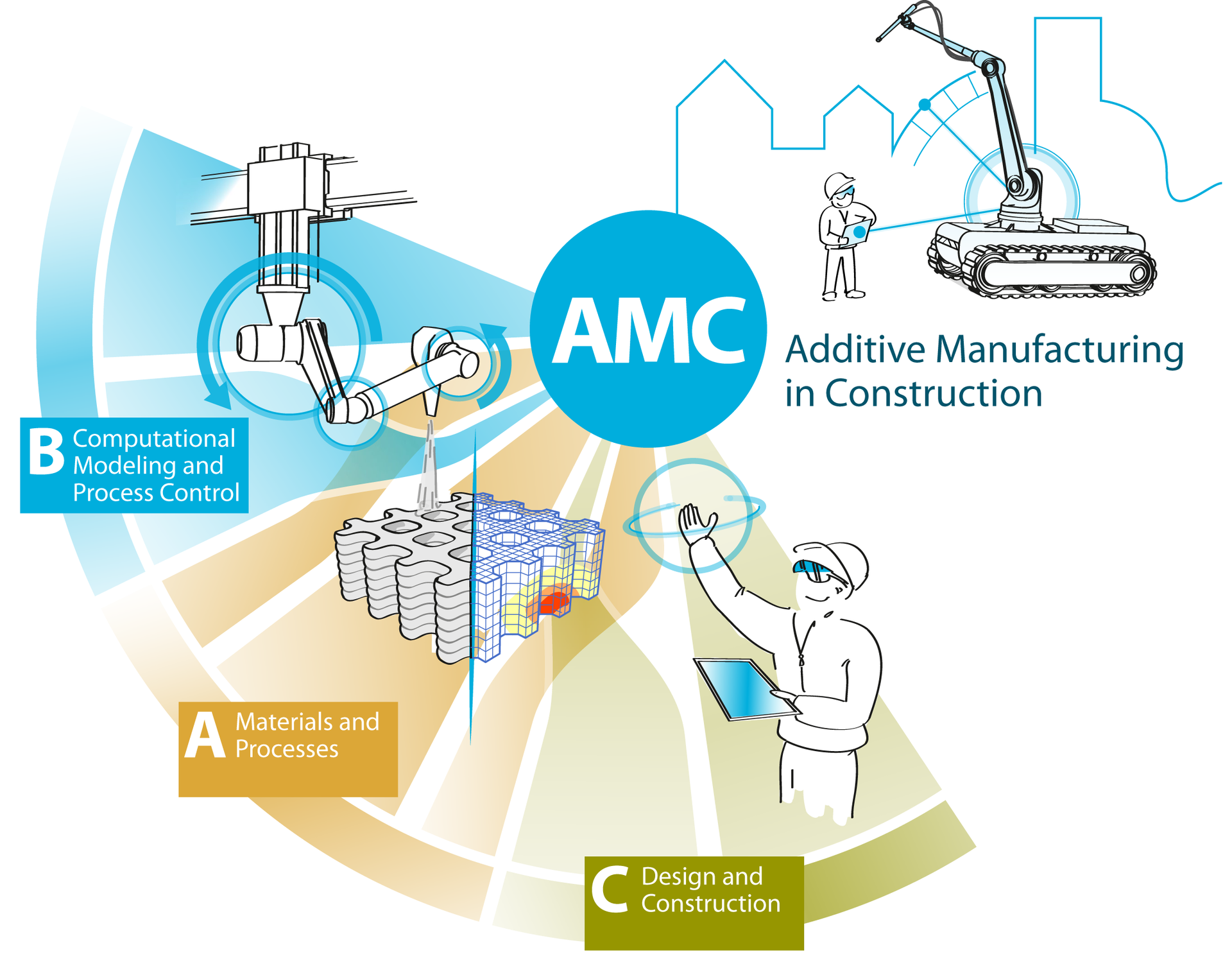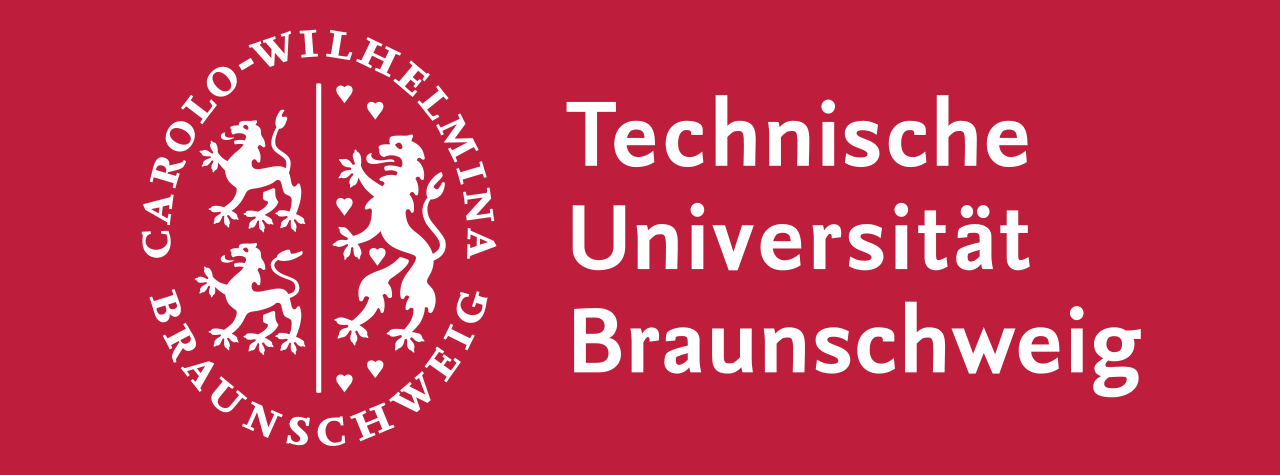About AMC
The Opportunity for Large Impact
The Collaborative Research Centre TRR 277 “Additive Manufacturing in Construction” (AMC) investigates how 3D printing can be applied as a technology in construction. The goal is to develop new construction methods that are faster, more cost-effective, and more sustainable. This includes printing components from concrete, metal, or clay, as well as the development of new materials, processes, and design freedom.
The research centre brings together scientists from civil engineering, mechanical engineering, architecture, and materials science to explore innovative methods that could revolutionize the construction industry. The aim is to use less material and simplify the production of complex structures.
In simple terms: AMC is working to make the construction of buildings and infrastructure more efficient, sustainable, and future-oriented through the use of 3D printing.
AMC is a funded by the German Research Foundation (DFG) for 12 years, started in 2020 and it is based at the Technische Universität Braunschweig and the Technical University of Munich. Around 100 scientists are conducting research on various aspects of 3D printing in construction.
The objective of the proposed TRR 277 is to explore the fundamentals for implementing Additive Manufacturing in Construction (AMC). Automated additive material application enables the construction of buildings with a high degree of design freedom and a resource-efficient use of materials. In order to fully exploit this potential, structural design, material behaviour and manufacturing processes must be fundamentally rethought and, above all, must interact. While additive manufacturing technology is already being used for serial production in other industries, there are still fundamental challenges to be solved when transferring it to the construction industry: First, the transfer of AM technologies to the large scale of construction; second, the necessary material and process diversity, which is determined by the complex functional requirements of a building; and third, the required high degree of individualization and flexibility in construction. These challenges give rise to complex research questions on materials, process engineering, control, modelling, design and construction, which are investigated by interdisciplinary teams of scientists from the fields of civil and mechanical engineering.
The work programme of TRR 277 is guided by two fundamentally new research approaches:
1. Combinations of materials and processes.
As a central topic of the research program, material and process coordination are considered as inseparable units in additive manufacturing. In project area A, innovative material and process combinations for Additive Manufacturing will be researched and brought to a new logic of form. All A-projects follow a novel integrative approach, investigating structural design, material behaviour and manufacturing processes as inseparable components within an interdisciplinary framework. For this it is essential to open up the material- and process combinations from the outset and not to restrict them to individual materials and/or processes. The project area B aims to ensure robustness and full automation of additive manufacturing processes by providing feedback and numerical simulation capabilities to the A projects.
2. The seamless digitalisation in the building industry.
End-to-end digitization is of crucial importance for the successful introduction of additive manufacturing in the construction industry. Focus Area C “Design and Construction” is therefore researching the digital interfaces to the upstream planning processes as well as the downstream processes of construction from the very beginning. The interaction between digital models and physical objects forms the methodological link of TRR 277 and is the basis for the networking between project areas A, B and C. The networking across the project areas is realized by the continuous production of large scale demonstrators and their digital twins.
The TU Braunschweig and the TU Munich share many years of experience in interdisciplinary and cross-location research on additive manufacturing in the construction industry. The excellent research infrastructure available at both universities and the complementary expertise form the basis for the research program and promote the strategic development of both universities. TRR 277 promises a high degree of national and international visibility and, together with other national research initiatives, aims to make an important contribution to the digitalization of the construction industry.







